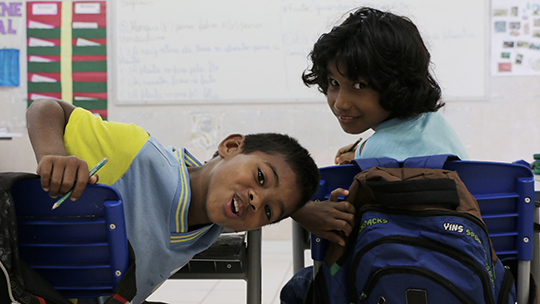Brasília – Brazil’s Human Development Index (HDI) went up 0.001 point last year in comparison to 2016, reaching 0.759 in a scale of 0 to 1 – the closer the reading is of 1, the highest the human development. The HDI is measured by the United Nations Development Programme (UNDP).
According to the UNDP, the 0.14% increase in the Brazilian per capita average income ensured that the country continued to improve, however slightly, in human development in 2017, despite inequalities in the population’s access to healthcare, education and economic perspectives still lingering.
The new index rate kept Brazil in the 79th position in the rank that includes 189 countries. In Latin America, the country is in fifth place, trailing Chile, Argentina, Uruguay and Venezuela. The Brazilian HDI stands above the 0.758 regional average of Latin America and the Caribbean.
Brazil has the ninth worst Gini coefficient – which measures only income – in the world. Among South American countries, Brazil stand at third place in income inequality, behind Paraguay and Bolivia.
Considering data collected since 1990, the country has registered a 0.81% growth in its annual HDI rate, with an increase of over 10 years in life expectancy, which reached 75.7 years, and of 3.2 years in children’s schooling time after school starts. Brazilians’ income in the same period rose 28.6%.
World
Norway (0.953), Switzerland (0.944), Australia (0.939), Ireland (0.938) and Germany (0.936) are at the top positions of the HDI rank. The bottom 5 countries are: Burundi (0.417), Chad (0.404), South Sudan (0.388), Central African Republic (0.367) and Niger (0.354).
Ireland posted one of the sharpest growths, climbing 13 positions from 2012 to 2017. Violence, armed conflicts and internal crisis contributed to countries such as Syria, Libya, Yemen and Venezuela to register the sharpest declines, respectively, 27, 26, 20 and 16 positions.
Considering the HDI since 1990, the number of countries rated with a “very high human development” increased from 12 to 59, and the ones rated with a “low human development” declined from 62 to 38 in this period.
Translated by Sérgio Kakitani




